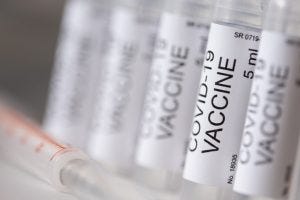Content Spotlight
Podcast: MilliporeSigma says education vital to creating unbreakable chain for sustainability
MilliporeSigma discusses the importance of people, education, and the benefits of embracing discomfort to bolster sustainability efforts.

Lonza will begin producing batches of mRNA-1273 from its site in New Hampshire in July as Moderna looks to achieve its goal of one billion doses of the potential COVID-19 vaccine annually.
Moderna Therapeutics’ mRNA-1273 is one of the frontrunners in the race to develop a vaccine against the coronavirus (SARS-CoV-2). The messenger RNA (mRNA)-based candidate entered Phase I clinical trials in March, and last week Moderna submitted an Investigational New Drug (IND) application for Phase II and late-stage studies.
In preparation for clinical and commercial success, Moderna has teamed with contract development and manufacturing organization (CDMO) Lonza to help scale up production, with an eventual aim to supply one billion 50 µg doses annually.

Image: iStock/vladans
“Lonza has experience producing oligonucleotides and the various elements required for Moderna’s process,” Karen Fallen, head of mammalian and microbial manufacturing, Lonza, told us.
“We also bring the knowhow to help Moderna scale their process up and to take it through regulatory approval. As there are no commercially available RNA products currently it is key to apply the experience we have across a broad range of modalities to this emerging one.”
As the production of mRNA-1273 is Moderna’s proprietary process, Lonza was unable to comment on the specific manufacturing details but Fallen said it involves enzymatic and cell free steps.
Initial manufacturing is planned to take place at Lonza’s site in Portsmouth, New Hampshire, with a second phase planned at its Ibex facility in Visp, Switzerland.
“Our facilities in Portsmouth will begin preparing clean rooms immediately,” Karen Fallen, head of mammalian and microbial manufacturing, Lonza, told us. “These will be ready for tech transfer in June 2020. There is no major construction required, these are existing suites.”
While the use of the Visp facility will depend on the demand for clinical product and possible approval for commercial manufacturing, Fallen said the plant has been designed with exactly this sort of challenge in mind.
“The preinvestment in shells allows us to cut construction time considerably compared to standard builds and gives the flexibility to install a broad range of manufacturing technology depending on needs. In addition we can plug into existing infrastructure including services (gas, water waste etc.) as well as analytics and quality labs.”
Moderna has its own mRNA production facility in Norwood, Massachusetts. The 200,000 square-foot site, which opened in July 2018, has capacity to develop materials for preclinical toxicology studies, Phase I and II clinical development programs, and the ability to manufacture, test and run fill/finish operations for its mRNA development candidates.
Moderna CEO Stéphane Bancel, speaking at BIO-Europe Spring in March, said rapid scale-up is vital during a pandemic. This long-term agreement with Lonza increases capacity for mRNA-1273 and Moderna’s other mRNA products ten-fold, Bancel said Friday.
Lonza, which has received more than 40 inquiries about COVID-19 related projects, is the sole CDMO to be working on this project, Fallen confirmed.
Financial details remain confidential, but we were told: “Lonza is committed to financing the set-up of a production unit in Visp, Switzerland. Moderna will finance part of their activities in the US with support from BARDA (Biomedical Advanced Research and Development Authority). Both companies are seeking further support for additional broadening of their supply potential.”
You May Also Like